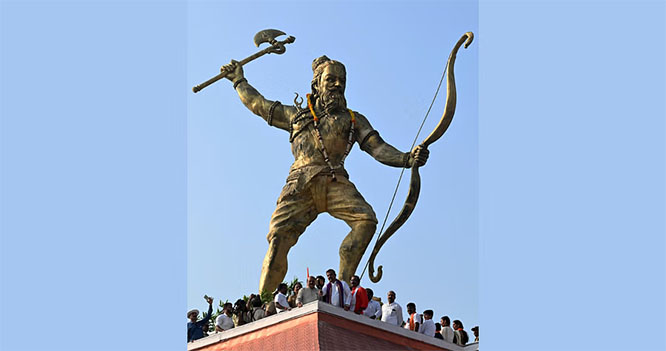After two cases of the deadly Nipah virus emerged in the neighbouring state of Kerala recently, out of which, one 12-year-old boy died, the Karnataka government on Tuesday directed districts bordering that state to strengthen the surveillance and preparedness.
It said that all those coming from Kerala should be monitored for symptoms like fever, altered mental status, severe weakness, headache, respiratory distress, cough, vomiting, muscle pain, convulsion, diarrhea.
Meanwhile, Karnataka Chief Minister Basavaraj Bommai on Tuesday said that he had instructed the experts to study the Nipah virus and give suggestions to tackle the disease.
"I have instructed the experts to study in details about the Nipah virus. I have also told them to give suggestions regarding how it will spread, how to tackle it," Bommai said.
A 12-year-old boy died of the Nipah virus infection at Kozhikode in Kerala on September 5. The test results of eight people, including the child's parents and health care workers, who came in close contact with him, returned negative. The Kerala government had put the health departments in four districts -- Kozhikode, neighbouring Kannur, Malappuram and Wayanad -- on high alert.
"In view of confirmed cases of Nipah virus (NiV) infection reported recently in the neighboring state of Kerala, it is imperative to strengthen the surveillance and preparedness in the larger interest of Public Health in Karnataka also, with special focus in the districts bordering Kerala -- Dakshina Kannada, Udupi, Mysuru, Kodagu and Chamarajanagara," the government advisory said.
Issued by the Additional Chief Secretary, Department of Health and Family Welfare, Jawaid Akhtar, it gave certain instructions to be implemented by district administrations to ensure the well being of the community, that includes monitoring those coming from Kerala for symptoms. Also, necessary public awareness should be spread among the public on Nipa, it said, adding that a systematic surveillance system is a necessary method to identify clusters of encephalitis cases, resulting in early detection of Nipah outbreaks.
The advisory said suitable samples have to be collected with all necessary precautions from suspected, probable and contacts and sent to the National Institute of Virology, Pune, for laboratory confirmation. However, Kerala's health minister Veena George informed news agency ANI that all 24 samples of eight persons sent to the NIV Pune have tested negative for Nipah virus
"All 24 samples of eight persons sent to National Institute of Virology, Pune were found negative (for Nipah virus). We are testing more samples. We have started field surveillance and will begin house-to-house surveillance in containment zones today," she told ANI.
As there is no known treatment or vaccine available, Ribavirin, an antiviral, may have a role in reducing mortality among patients with encephalitis caused by Nipah virus disease, it further said, adding that intensive supportive care with treatment of symptoms is the main approach for managing the infection in people.
The advisory also instructed district authorities to send the daily reports, even if Nil, in a prescribed format, to the Commissioner, Health and Family Welfare Services, Arogya Soudha, Bengaluru. District Authorities should take all the necessary measures as instructed and as per the local situation, it added. Stating that Human Nipah Virus (NiV) infection is an emerging zoonotic disease, the health department said that in India, two outbreaks in humans were reported from West Bengal and neighboring Bangladesh in 2001 and 2007.
Further, confirmed cases and deaths were also reported from Kerala during the outbreak in 2018. Large fruit bats of the Pteropus genus are the natural reservoir of Nipah virus, whose cases tend to occur in a cluster or as an outbreak. In general, the case-fatality rate is estimated at 40-75 per cent. However, this rate can vary by outbreak and can be up to 100 per cent, it added.








Comments
Add new comment